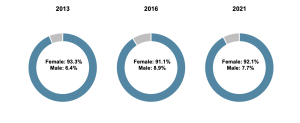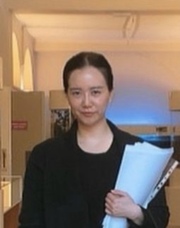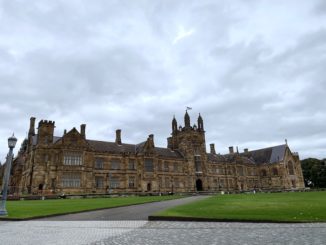
Key Words:
Early Childhood Education, University Students
A small town four hours by train from Sydney city, that is where Duoduo Zeng(Olivia) just did her fieldwork.
Olivia is a fourth-year student of Bachelor of Early Childhood Education, at the University of Sydney.
After Covid-19, scarcity of early childhood teachers has become a common issue across Australia, especially in rural areas.
"Regional Australia remains constrained by the inability to fill roles with people from outside the area because of Australia’s housing crisis, and the workforce shortages impacting early childhood education," says Liz Ritchie, CEO @RegionalAus. https://t.co/PwvQzfMEd4 #auspol
— The Parenthood (@the_parenthood) May 30, 2023
The lack of early childhood teachers is causing children in this country to lose their education at a critical early stage of their lives, while their parents have to give up their jobs in order to care for them.
At the center where Olivia did fieldwork, there are only 7-8 teachers, and some of them are not full-time. “Because it is so far away, people don’t want to come.”
“Research said that one in five early childhood teachers are going to leave the age profession,” Dr. Wendy Seem Lee, the lecturer and student advisor of Early Childhood, at the University of Sydney, told us.
The problem also occurs among students in Early Childhood Education students.
Throughout Olivia’s undergraduate career, a number of classmates have chosen to change their majors. “Many students have thought about changing their majors, and I am no exception.”
Man Yuan (Mandy) is one of them. At the end of her third year of study, she changed her major despite the opposition of others.
“I love this profession and I love kids, but I am stuck here.”
“I met a lot of difficulties during my internship, so I gave up,” Mandy felt sad, what is taught in university is completely different from the difficulties encountered in the kids center.
Compared with Early Childhood Teachers(ECT), students seem more willing to choose other relevant careers.
“The University has about 150 undergraduate and postgraduate students,” Wendy said, “some of our graduates are working in some field of early childhood.”
“A small number of students may just go back to their own country and then work in the country, and then they do not seem to be doing ECT anymore,” Olivia said.
In Olivia and Mandy’s mother country China, being an ECT does not require a high education degree. “After I return to my country, this major actually has fewer advantages for my future work,” Mandy told the second reason why she changed her major.
While, for those Australian university students, they spend around four years to get a bachelor’s degree, but only get about 25-30 AUD per hour after graduation.
There seems to be a lot going wrong in the industry.
What are the problems?
“Low pay is the main reason why teachers are leaving.” ECTs often require more experience than elementary and middle school teachers, but receive much less pay. Such salaries do not even support their daily lives. Even after a strike, the situation has never gotten better.
“More people, not only students choose to work as casual educators, resulting in a shortage of permanent staff in the center,” Mandy said. Compared to full-time ECT, they prefer to be part-time or casual to get higher pay.
“Having new teachers every couple weeks, which is not good for children,” Wendy expressed her regret.
Gender discrimination also exists. When people think of ECT, people always think of females.
“This seems to be a cliche. One of my classmates was discriminated against by the center because he was male, and where I worked the room director would voluntarily let male staff out of the baby room, but this is not the practice at most centers, but these problems still exist,” Mandy said.
“We need more male teachers because most of our male teachers are primary or secondary, not in early childhood, so I think it is a really important issue,” Wendy said.
“Some parents do not want their children, especially girls, to be taken care of by male teachers,” Olivia said, “But one of the male students around me is paid $4 an hour more than the female students in the same center”.
This makes Olivia feel a great injustice that male ECT do not even need to do tasks like changing children’s nappies.
As a female-dominated profession, are early childhood centers making the decision to pay teachers differently by gender 11q1for equal work in order to retain more male teachers?

Gender of the workforce, 2013 to 2021 (From 2021 ECEC NWC National Report)
Olivia and Mandy both mentioned that early childhood education is one of the major immigration majors in Australia at present.
“Lots of people choose this job as a bridge to get the Australia PR(Permanent Resident).” Once these people have achieved it, they will choose to leave.
Do they like the job, or do they just want the benefits that come with it?

Wendy Seem Lee gives her personal advices
What Should We Do?
From government to society, everyone should change their view of Early Childhood Education.
“Government should increase the pay.” Wendy said, “More importantly, the social discourse.”
“What happens in the first five years of life can really set the stage for the rest of your life.” That is the reason why Wendy thinks early childhood education is so important, the experiences of early childhood will affect a person’s whole life.
For Wendy, the key to changing the current problem is to change the way people think about early childhood education and give early childhood teachers the respect and support they deserve.
People always think that early childhood teachers are just taking children to play with Lego, “which is really a false and inaccurate representation of what we do as professionals.”
Such misconceptions lead to the illusion that early childhood teaching is an easy, non-respectful, and non-highly paid job.
Yet the exact opposite is true.
It is urgent to raise the correct awareness of early childhood education.
For the Future
“I think we need more teachers and not just any teachers, but good, dedicated, devoted teachers.” Wendy hopes.
“I saw an advertisement for Early Childhood Teachers posted by the Victorian government on Instagram. I hope more and more people will join in the future.” Olivia said.
Related Reading
- Early childhood educators ‘barely able to survive’ on wages as workers call for action
- Childcare sector reaching crisis point over workforce shortages and low wages
- Regional child care services say more staff are needed ahead of rebate rise
About the Author

Bachelor of Arts, Master of Media Practice, the University of Sydney.
Contact: yuli5113@uni.sydney.edu.au




Be the first to comment